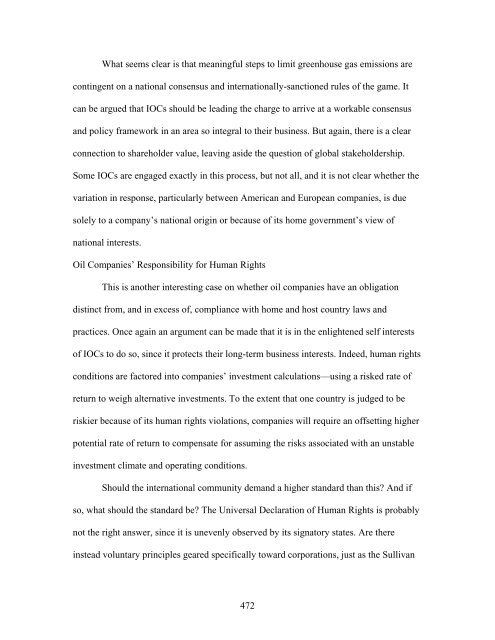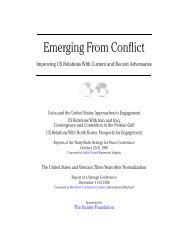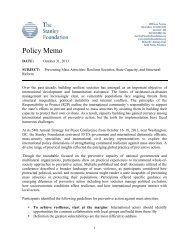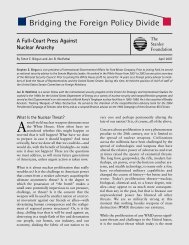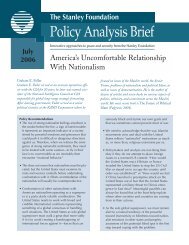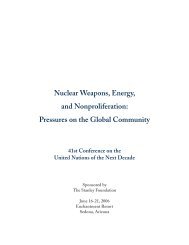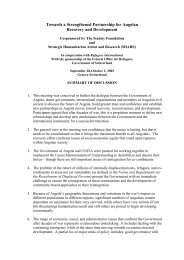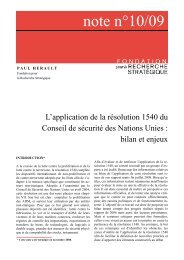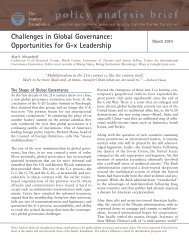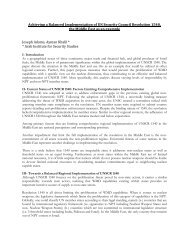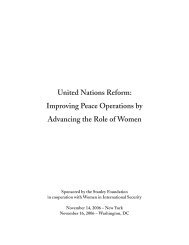444 By Susan Ariel Aaronson and David Deese With a reaction by ...
444 By Susan Ariel Aaronson and David Deese With a reaction by ...
444 By Susan Ariel Aaronson and David Deese With a reaction by ...
- No tags were found...
Create successful ePaper yourself
Turn your PDF publications into a flip-book with our unique Google optimized e-Paper software.
What seems clear is that meaningful steps to limit greenhouse gas emissions arecontingent on a national consensus <strong>and</strong> internationally-sanctioned rules of the game. Itcan be argued that IOCs should be leading the charge to arrive at a workable consensus<strong>and</strong> policy framework in an area so integral to their business. But again, there is a clearconnection to shareholder value, leaving aside the question of global stakeholdership.Some IOCs are engaged exactly in this process, but not all, <strong>and</strong> it is not clear whether thevariation in response, particularly between American <strong>and</strong> European companies, is duesolely to a company’s national origin or because of its home government’s view ofnational interests.Oil Companies’ Responsibility for Human RightsThis is another interesting case on whether oil companies have an obligationdistinct from, <strong>and</strong> in excess of, compliance with home <strong>and</strong> host country laws <strong>and</strong>practices. Once again an argument can be made that it is in the enlightened self interestsof IOCs to do so, since it protects their long-term business interests. Indeed, human rightsconditions are factored into companies’ investment calculations—using a risked rate ofreturn to weigh alternative investments. To the extent that one country is judged to beriskier because of its human rights violations, companies will require an offsetting higherpotential rate of return to compensate for assuming the risks associated with an unstableinvestment climate <strong>and</strong> operating conditions.Should the international community dem<strong>and</strong> a higher st<strong>and</strong>ard than this? And ifso, what should the st<strong>and</strong>ard be? The Universal Declaration of Human Rights is probablynot the right answer, since it is unevenly observed <strong>by</strong> its signatory states. Are thereinstead voluntary principles geared specifically toward corporations, just as the Sullivan472


